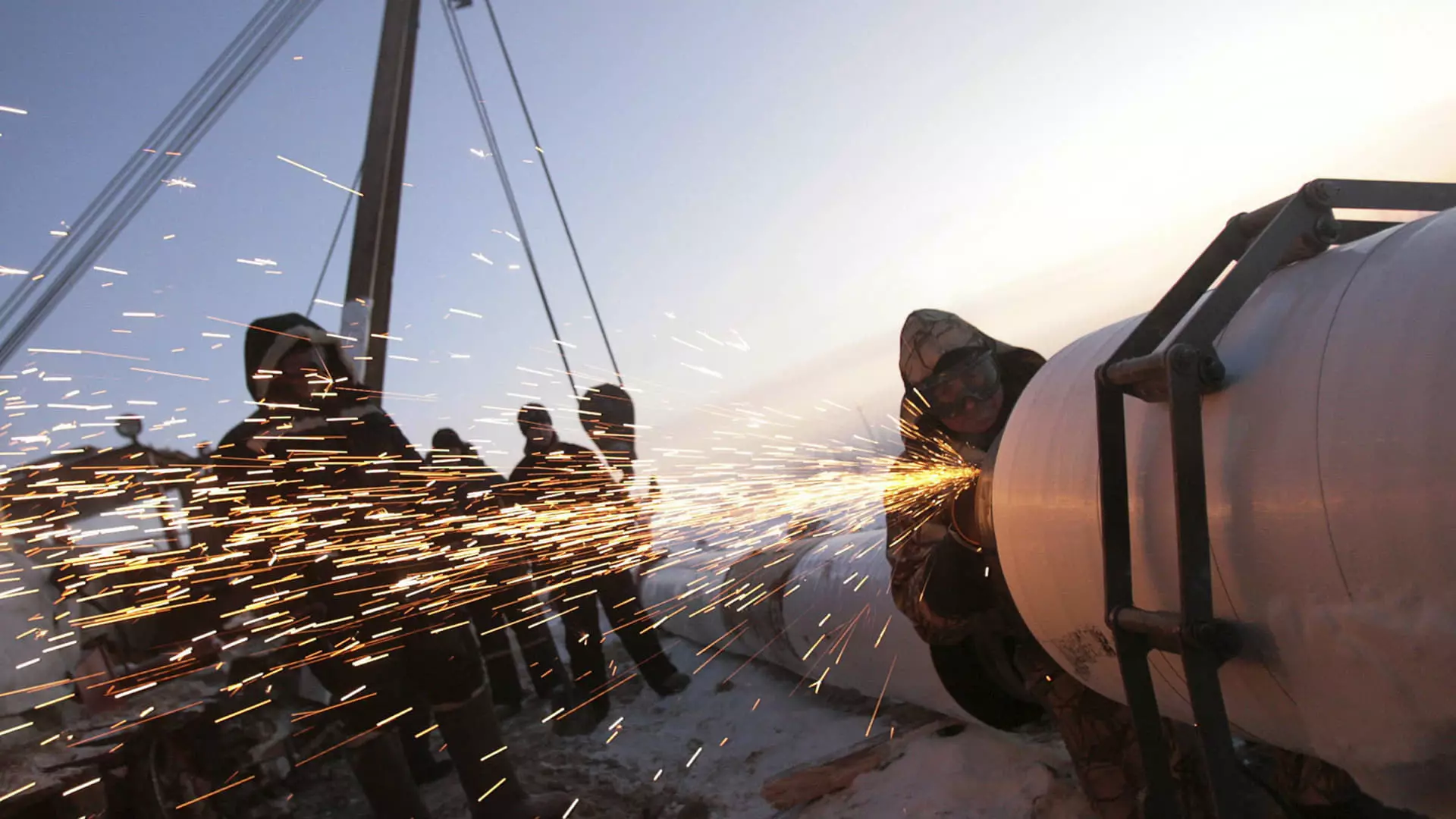In the dynamic realm of European energy, Gazprom, the Russian gas titan, finds itself in a precarious position. With a long history as a dominant supplier, particularly before the onset of war in Ukraine, Gazprom’s influence is waning. Recent developments, such as the suspension of gas supplies to Austria’s leading energy supplier, OMV, highlight a significant turning point. An arbitration ruling has exacerbated tensions, demonstrating how geopolitical shifts and legal disputes can quickly alter the energy landscape.
On a seemingly routine Saturday, Gazprom’s operations were disrupted, particularly concerning deliveries to OMV, following an announcement from Austria regarding a cessation of flows. The immediate halt to supplies at local time prompted a swift response from Austria’s energy regulatory body, E-Control, which assured the public that gas prices and local supplies remained stable. However, the loss of one of the last significant pipelines delivering gas from Russia represents a sobering reality for European nations that had previously depended heavily on this resource. The arbitrations labeled Gazprom as unfulfilled in its commitments, a narrative that undermines Russia’s long-standing reputation as a reliable energy supplier.
For decades, European nations have maintained a complex interdependency with Russia for natural gas, rooted in historical agreements and infrastructure established during and after the Soviet era. Infrastructure like the Urengoy-Pomary-Uzhgorod pipeline, which has been a key transit route, is now up for reevaluation as the Ukraine crisis impacts energy security across the continent. At its zenith, Russia delivered a staggering 35% of Europe’s gas; however, the prevailing war has prompted a complete reevaluation of this reliance. Countries like Norway, the USA, and Qatar have seized the opportunity to fill voids, thereby reshaping energy supply dynamics and diminishing Gazprom’s hold on European markets.
As we look ahead, the landscape is unraveling with uncertainties. For Austria, the cutoff from Gazprom influences not only national energy policy but also raises broader questions about future procurement strategies. With Gazprom intending to maintain some gas flow into Europe—reportedly around 42.4 million cubic meters over recent days—viz-à-viz the impending gas shortages potentially facing other nations, the reliance on a singular supplier becomes even more precarious.
The looming shutdown of the last major remaining Russian gas routes further complicates matters, particularly for surrounding regions, including Slovakia and Hungary. With supply patterns shifting and existing agreements becoming tenuous, nations must reassess their energy strategies to reduce dependence on Russian gas.
The political landscape is equally charged, with Chancellor Olaf Scholz and President Vladimir Putin discussing energy supplies for the first time in nearly two years. Putin’s insistence on fulfilling energy contracts signals a desire to restore some modicum of trust and collaboration even amidst tensions. Yet, this assertion contrasts sharply with the realities on the ground, where energy supplies are being curtailed and disputes arise over contractual obligations. The conversation surrounding energy security cannot be divorced from the geopolitical machinations that continue to unfold.
Recent data underscores the scale of change in gas supply within Europe. Gazprom, which used to enjoy significant market share, must now confront new competitors filling the void left by its diminishing capacity. Notably, Hungary and Slovakia appear to be the last bastions of Russian gas, as European consumers begin to pivot toward diversification—perhaps seeking non-Russian sources of gas, including pipeline capacities from alternative alliances. This shift hints at a broader transition toward more resilient energy models for these nations.
The cascading effects from the disruptions in Russian gas supply underscore an urgent need for a paradigm shift in Europe’s energy policies. National governments must seek alternative suppliers, enhance energy efficiency, and invest in renewable resources to build robust relief systems for their economies. The suspension of gas flows to Austria is not merely a hiccup, but a stark warning sign that the energy landscape is rapidly changing. If Europe wishes to remain competitive while ensuring energy security, it must reforge its approach in a world where reliance on a single supplier is increasingly untenable.


Leave a Reply